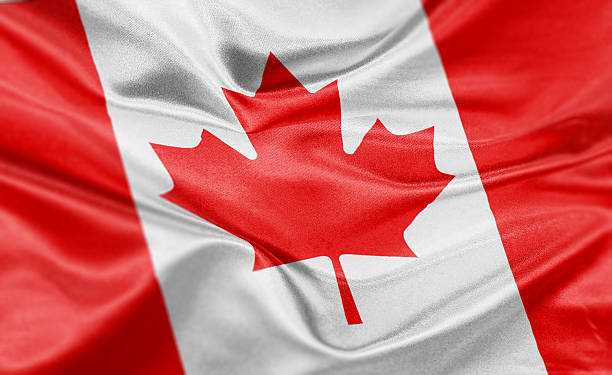UN Foreign Retirement Pension Explained part two. You can see part one here.
7 Problems Expats Faces in UN Jobs
While working for the United Nations can be an exciting and rewarding experience, there are a few things expats should keep in mind before going into this line of work. The UN is a non-profit organization that strives to build a better world where people live in peace and harmony, free from hunger and poverty.
The organization was founded by 51 countries in 1945 after World War II. When working for this international organization, it is important to keep in mind that the UN’s first priority is not necessarily the satisfaction of its employees. Keeping quiet about problems and continuously accepting lower salaries can be disheartening for expats. Meanwhile, it is something you will have to deal with if you want to continue working in this line of work.

However, In order to make expats’ lives a little easier, seven problems they might face while working for the UN have been listed below.
- Low salaries that will never match market value no matter how long you work for the UN. In some cases, it can take up to 15 years before an expat’s salary reaches an approximate market value.
- Cost of living in New York is high, but salaries are not adjusted to the cost of living standard the city has to offer.
- Expats can be transferred anywhere in the world, at any moment they are needed for a mission or simply because there is another job available somewhere else.
- While working for the UN, it is difficult to get a loan from a bank since your salary is not guaranteed and you can be fired anytime without any warning or explanation.
- Retirement age in the UN is only 55 years old, compared with most private companies where retirement age can reach 65 years old or higher.
- Expats are constantly working for the UN without getting any time off to rest; visit family members back home or simply go on a vacation.
- The health insurance provided by the UN is far from being satisfactory, especially considering the high cost of living in New York City.
The above-mentioned problems are only some of many that expats are facing when working for the UN. However, if one is willing to work hard, keep their complaints to themselves and simply go along with the system, then this job can be quite rewarding.
Working for an international organization that has a hand in making some of the world’s most important decisions every day is truly inspiring. At least this is what most expats who have worked for the UN say about their jobs.
Despite its many benefits, working for the UN does have certain challenges that should be taken into consideration before taking a job offer with this international organization. It is important to know what one is getting themselves into before deciding if they want to work for the UN or not.
For those who are interested in working for the UN, it is recommended to look up all the information available on this subject before sending an application. The next step would be to contact expats currently working for the organization by means of social networks or simply ask them questions about their job. It should also be noted that since every country has its own UN office, it is important to know where the organization was founded before applying for a position.
For those who are currently working for the UN, you can meet them as an expat to share any additional information that could be of help. Furthermore, it should also be noted that by sharing your first-hand experience with others you are helping them pave the way towards a better life.
Again, working for an international organization is definitely not easy, but it can be incredibly rewarding as well. That’s why many expats are willing to work for this kind of job that offers so many opportunities. Not only is that, but it’s another reason why there are so many foreigners working for companies like the UN all over the world.
Applying for United Jobs as an Expat
As an expat wanting to secure this kind of jobs, there are many things to put into consideration. Before you apply for any position in the UN, we have compiled some of the requirements and things needed to do in this section. Without further ado, let’s quickly walk you through the methods and procedures.
· Administrative and Support Staff

Applicants for vacancies advertised in the UN Job Listings under “General Support” should send their application electronically by following the instructions provided in the job advertisement. All other applicants should send their application electronically by following the instructions available on their home page.
· Professional Staff
Applicants for vacancies advertised under “Professional Jobs” must follow specific application procedures, depending on whether you are being considered for recruitment via an open competitive examination or through a direct hire procedure, as outlined in the relevant vacancy notice.
· Consultants
Expats applicants for vacancies advertised under “Consultant Vacancies” must follow specific application procedures, as outlined in the relevant advertisement.
· International Civil Servants

Applicants for vacancies advertised under “Staff Members” must send their applications electronically by following the instructions provided in the job advertisement.
Other staff member: Applicants for vacancies advertised under “Staff Members” must send their applications electronically by following the instructions provided in the job advertisement.
· Term Staff Member
Applicants for term positions should apply directly to the individual agency, although recruitment agencies may also be engaged, depending on the terms of appointment.
· Limited Duration Appointment
Applicants for Limited Duration Appointments should apply directly to the individual agency or contact the HR Service Centre.
· New Appointment
Applicants for new appointments should follow the standard procedures as outline in Section 3 of the United Nations role. However, in case of doubt concerning which procedure applies, applicants should contact their local HR Officer for more information.
Frequently Asked Questions about UN Foreign Retirement Pension
Why does Canada contribute to part of the UN Foreign Pension?
Well, from the information above, we can tell you that Canada contributes because they belong to, and support the work of the United Nations. In addition, it allows Canadian retired UN staff access to better benefits and services when they retire in either New York or Geneva.
Does Canada contribute to the UN Pension Fund?
Of course Yes, Canada (and all permanent members of the Security Council) contributes 0.0022% of its regular budget allocation for each staff member who is a member of the United Nations pension systems and who was in service on December 31st of the previous year. The contribution rate has been 0.0022% since 1 July 2003. Moreover, the first contribution was made for the first half of 2003.

How much does Canada contribute?
The amount to be contributed changes each year depending on the UN’s regular budget allocation, but it is currently about $4 million per year. Contributions are paid quarterly, in arrears. So, have this in mind if you’re thinking of working for the United Nations in Canada.
How much does a staff member contribute?
The United Nations sets a rate for its employees’ regular and supplementary pension contributions each year – currently 2.55%. Contributions are paid monthly, in arrears. The United Nations’ contributions can be found on their platform. But ensure you know how it works before you play your part.
How long will it take for a UN member to receive a pension from?
Well, as research disclosed, if the UN staff member is enrolled in the Regular Pension Scheme, and they have at least 5 years of pensionable service as of 31st December 2014, they are eligible to receive an immediate pension benefit, which started in January 2015. More so, if the UN staff member has less than 5 years of pensionable service as of 31 December 2014, they may be eligible to receive a deferred monthly pension benefit at age 65.
What are the United Nations Services?
In no doubts, there are many type of services provided by the United Nations. This organization provides its staff with an array of financial services through UNJSPF. Some of these services include; savings plans, flexible benefits, salary exchange programs, tax equalization, and many other things to mention a few.
Conclusion
Working for the United Nations could be one of the best decisions you’ve ever made. But, it all requires a daunting process to secure the job. In this case, we advise you to understand the recruitment process before you start submitting your documents. Refer to this guide for more information.


